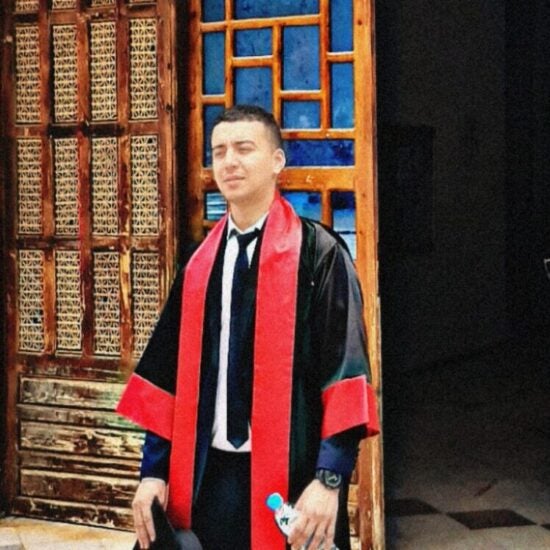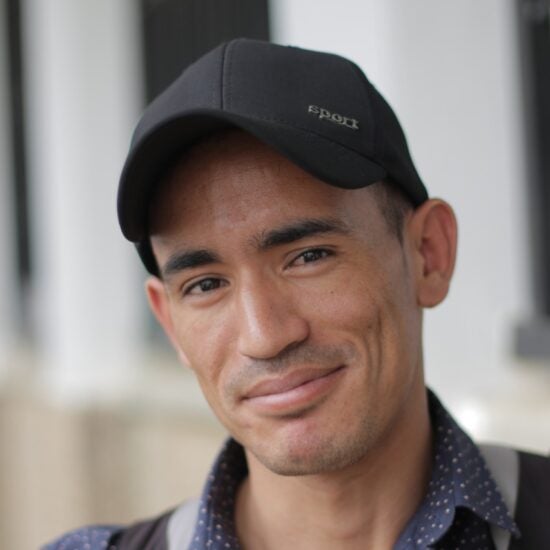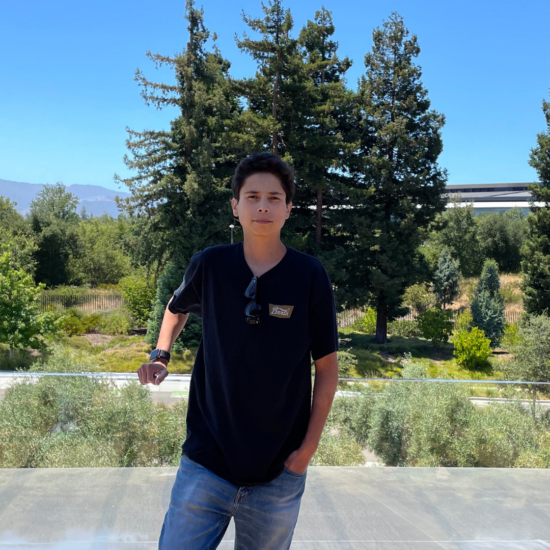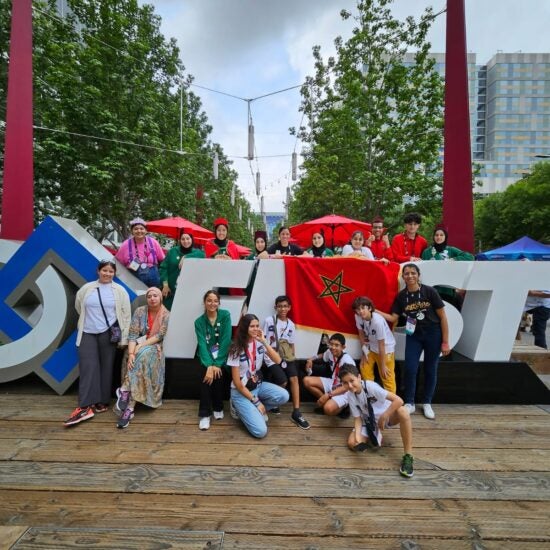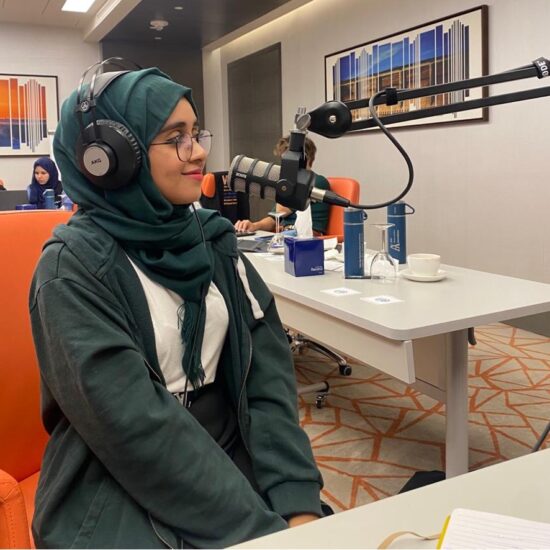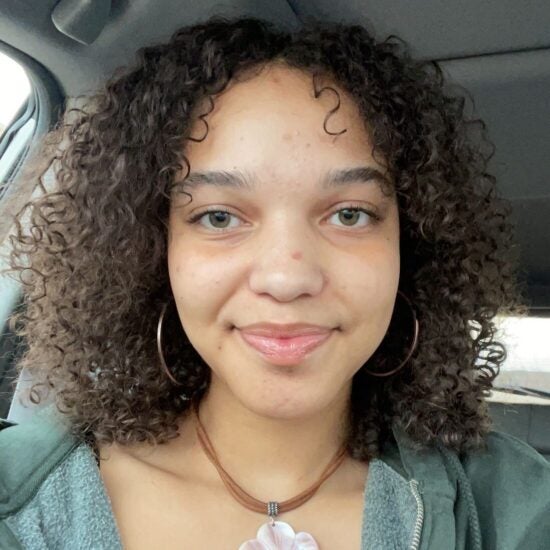Ahmed, a Yemeni student, first learned about virtual exchange from a friend. He was skeptical and didn’t think a fully online program was going to be impactful for him. Considering the internet connectivity issues he faced day-to-day, he thought it was unlikely that he would enjoy an experience centered on forming connections virtually. That was until he saw his friend become increasingly involved with virtual exchange and the many opportunities that resulted from those experiences.
Once Ahmed decided to try out his first virtual exchange, he was hooked. To date, he has participated in three different Stevens Initiative-funded virtual exchange programs: World Learning’s The Experiment Digital, Soliya’s Global Circles, and Amideast’s Qisasna, developing different skillsets during each of these experiences. In particular, his experience with The Experiment Digital and Qisasna led to many professional and personal gains.
In each virtual exchange, he not only developed important skills like leadership and improved communication, but also new perspectives when meeting people from different backgrounds. “The biggest thing that I’ve learned is that I don’t have to judge people unless I know them. I had stereotypes about American people, but I learned that they are good people and very respectful. They care about you, they care about your future and their own, and they care about being productive in their communities.”
While participating in Qisasna, where he developed a podcast episode on addressing water scarcity issues in Yemen and the U.S., Ahmed stood out as an engaged participant and was offered the role of a co-facilitator for an upcoming program cycle. He enthusiastically took on this role and was able to reflect on his own experience as a participant to offer the type of support that he felt was needed. “Because you’re dealing with students, you have to be careful, you have to be supportive, and [you have to remember that] you’re dealing with people from different nationalities – people that are not the same as you are,” he said. At the end of the program cycle, the four teams he co-facilitated were the first teams to complete their podcast, and he was proud of their success.
Serving as a co-facilitator wasn’t the end of Ahmed’s connection to Qisasna. As an alumnus of the program, he took full advantage of the opportunities available to him. When offered the chance to develop another podcast through the Qisasna alumni program, he reached out to a fellow alumnus from the U.S., Jonah. Together, they worked on a podcast episode, “A Life Changing Gateway,” which covered the importance of providing international education experiences for young people. Without participating in Qisasna, he wouldn’t have connected with a student like Jonah, and they wouldn’t have been able to continue collaborating and building on their friendship. “I knew that when you participate in an exchange, you meet friends and those friends [help you] make connections and those connections lead to success,” Ahmed said.
Ahmed has also helped out other friends from the U.S. whom he met through Qisasna with political science research focused on the Middle East and North Africa. He offered his time and insights to help them in their studies, and he is grateful to know that the door is open for future collaboration with his peers. He has gone on to publish another podcast in Arabic titled “A Seed of Success,” which tells a story about an entrepreneur, details the challenges they faced, and the perseverance it takes to achieve success.
Ahmed has many interests, including a passion for changing the education system in Yemen. His participation in The Experiment Digital led to a small grant to support his team project of teaching public school girls in Yemen how to use computers and other technology. This was a strong need Ahmed identified, as the education system in Yemen does not include technology or computer studies as part of the learning curriculum. His project, called Programmah, resulted in 50 girls learning to use Microsoft Office, the internet, and other critical 21st century technology, while also helping clarify his passion. “This is my future goal – I want to change the education system here [in Yemen],” he said.
The success of the project not only expanded Ahmed’s passion but also attracted support for the project’s continuation. What started off as a project supported by a five-hundred-dollar small grant grew into one with a $20,000 grant from the U.S. Embassy in Yemen’s Alumni Engagement Innovation Fund (AEIF). Through this funding, Ahmed implemented a project to empower young women in Aden, Yemen to develop the technology skills needed to enter the workforce. But Ahmed’s work did not end there. He recently applied for funding from the Goethe Institute Cultural Network in Yemen, and his proposal was selected. With this pool of funds, he will be working on Yemen’s Bright Comics, a project to train ten young artists in digital art creation to highlight the bright side of Yemen through visual storytelling. At the same time, he is working with his team on establishing a non-profit organization called Technology & Education for Change.
For Ahmed, virtual exchange has opened up doors for success. If someone is doubtful about joining a virtual exchange, like he once was, “I would tell them to look at my life before the [virtual] exchange program and my life after.” He is now tackling bigger projects, has access to more resources, and is bringing real change to his community.
Qisasna is implemented by Amideast and is supported by the J. Christopher Stevens Virtual Exchange Initiative (JCSVEI). JCSVEI is a U.S. Department of State’s Bureau of Educational and Cultural Affairs program administered by the Aspen Institute., Global Circles is implemented by Soliya and is supported by the J. Christopher Stevens Virtual Exchange Initiative (JCSVEI). JCSVEI is a U.S. Department of State’s Bureau of Educational and Cultural Affairs program administered by the Aspen Institute., The Experiment Digital is implemented by World Learning and is supported by the J. Christopher Stevens Virtual Exchange Initiative (JCSVEI). JCSVEI is a U.S. Department of State’s Bureau of Educational and Cultural Affairs program administered by the Aspen Institute.


